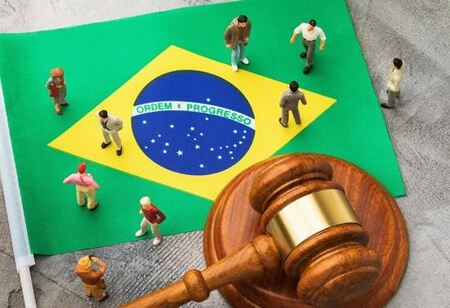
Brazil's Supreme Court Holds Social Media Firms Accountable for Unlawful Postings


In a historic case for Latin America with ramifications for US relations, the majority of justices on Brazil's Supreme Court have agreed to hold social media corporations accountable for unlawful postings made by their users.
To come to a consensus on how to handle social media businesses in light of the growing number of online allegations of fraud, child pornography, and juvenile violence, Brazil's top court chose to rule on two separate cases.
Critics caution that since platforms delete potentially problematic content in advance, such controls could jeopardize free speech.
Gilmar Mendes became the sixth justice in the court to vote in favor of allowing firms like Microsoft, Meta, and X to be sued and fined for user-generated content.
Following a warning by US Secretary of State Marco Rubio about potential visa restrictions on foreign officials suspected of censoring American people, the decision will be made. According to reports, one such authority is Brazilian Justice Alexandre de Moraes, who has taken action against social media companies that he believes violate Brazilian law.
Following the completion of voting and the publication of the results, the social media proposal would become law.
However, the policy could still be overturned by another bill passed by the Brazilian Congress.
According to the law as it stands, social media corporations are only liable if they fail to delete dangerous content following a court order.
Following the Jan. 8 riot in 2023, in which supporters of former president Jair Bolsonaro looted the Supreme Court, the presidential palace, and Congress in the country's capital, Brasilia, there was a surge in public discussion over social network regulation in Brazil.
According to Alvaro Palma de Jorge, a law professor at the Getulio Vargas Foundation, a think tank and university located in Rio de Janeiro, platforms must take the initiative to control content.
The decision on Wednesday aligns Brazil's stance on big tech with that of the European Union, which has aimed to limit the influence of social media firms and other online platforms.
Also Read: 5 Richest Women in Asia in 2024
According to the Brazilian Chamber of Digital Economy, a group that represents several sectors of the digital economy and is based in Sao Paulo, making platforms inherently responsible for the content on their platforms may violate free speech since they may remove content in advance.

